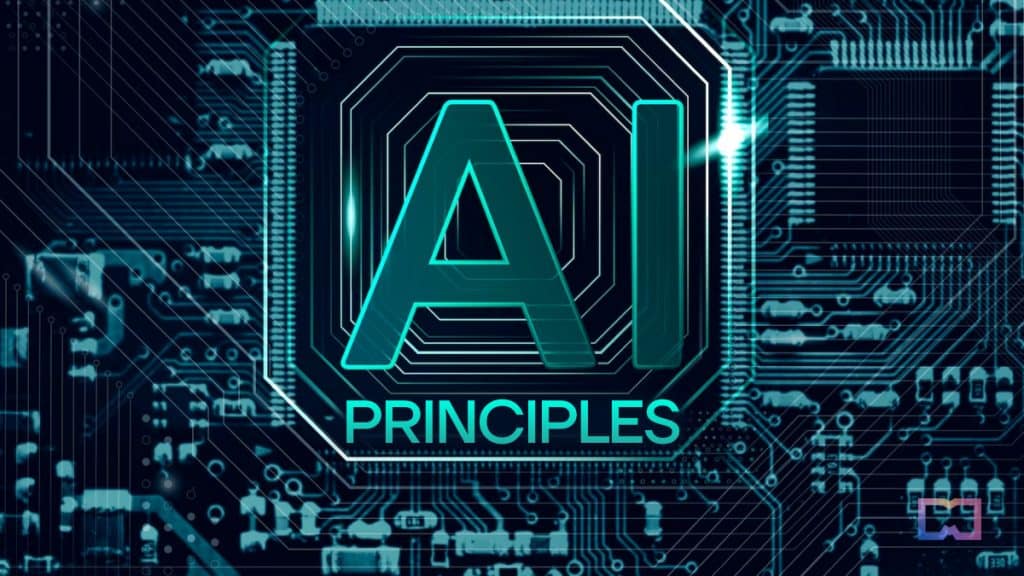Global Alliances in Publishing and Journalism Advocate for Ethical Usage of AI in Media
In Brief
An international coalition of leading publishers and journalists has put forth a set of comprehensive global guidelines aimed at directing the ethical design, application, and governance of AI technologies.
This initiative underscores the need to honor intellectual property rights, ensure quality content is used for training AI, and avert market inequalities.

A worldwide coalition formed by influential publishers and journalists, including AMI, FIPP, and WAN-IFRA, has introduced a set of global standards for global principles to steer the ethical design, implementation, and governance of AI technologies.
The goal of this initiative is to strike a balance between leveraging AI's transformative capabilities while upholding intellectual property rights, fostering transparency, accountability, and promoting fair competition.
"The rise of AI technologies, particularly Generative Artificial Intelligence (GAI), marks a pivotal shift in our engagement with technology and creative expressions. While AI holds the potential to offer immense benefits to the public and creators alike, it also threatens the sustainability of creative sectors, erodes public trust in information, journalism, and science, and can undermine democratic frameworks,\"
News Media Alliance shared.
These principles highlight the necessity of honoring intellectual property rights, ensuring fair compensation for content usage, adhering to copyright rules, and acknowledging existing licensing frameworks.
Transparency mandates the meticulous logging of publisher works and the legal rationale behind their access, promoting accountability for system-generated outputs. Moreover, maintaining quality and integrity is crucial for building trust, emphasizing the use of superior content in AI training.
Equality in market competition is essential, as it seeks to prevent AI from generating unfavorable market conditions that might benefit only large digital platforms. Furthermore, considerations regarding safety and privacy stress the need for accurate AI-generated content that maintains user privacy and mitigates biases.
The Global AI Principles include the following guidelines must be observed by developers, operators, and implementers of AI systems:
- Respect the intellectual property rights that protect original content investments.
- Adopt effective licensing practices that stimulate innovation through the training of reliable, high-quality AI systems.
- Provide transparency by enabling publishers to assert their rights when their content is incorporated into training datasets.
- Ensure clear attribution of the content to its respective original publishers.
- Recognize the vital role of publishers in curating high-quality content for training, visibility, and synthesis.
- Comply with competition regulations, guarding against the misuse of AI models for anti-competitive practices.
- Support trustworthy and reliable sources of information, ensuring accuracy and comprehensiveness in AI-generated content.
- Avoid presenting original works in a misleading manner.
- Protect user privacy by fully informing users about the utilization of personal data during the development, training, and operation of AI systems.
- Align operations with human moral values and adhere to global legal standards.
"These guidelines ought to be integrated inherently into all AI systems, encompassing general-purpose AI technologies, foundational models, and GAI systems.\"
This groundbreaking initiative, backed by global publishers, signifies a major advancement towards cultivating an ethical and sustainable future for AI.
Why the Ethical Standards from Global Publishing and Journalism Bodies Matter
AI technologies hold the promise to elevate the quality, variety, and accessibility of content; however, they also present notable obstacles to intellectual property protection, the reliability of information, and fair market dynamics. These ethical standards strive to tackle such challenges by proposing industry norms and best practices for the governance of AI systems.
A pivotal aspect of these principles is the acknowledgment of the value and rights of content creators, who invest considerable time, energy, and resources into crafting original and high-quality productions. AI technologies should honor and reward these creators rather than exploit or infringe upon their rights.
The principles also place great emphasis on the necessity for transparency and accountability in AI, particularly when it comes to content generation or manipulation. Users should have the ability to differentiate between human-generated and AI-generated content and validate the sources and processes associated with both.
Another significant focus is on ensuring fair competition and fostering innovation within the media landscape. AI systems should promote a diversified array of voices and maintain equitable market conditions rather than facilitating monopolies or market distortions.
The global standards regarding AI systems are a timely and urgent response to ensure that AI technologies enhance public welfare while respecting the rights and interests of content creators. They provide a unifying framework and a collective vision for the media sector and its various stakeholders and serve as a foundation for constructive dialogue with policymakers and regulatory bodies.
In July, renowned authors such as Jennifer Egan, Nora Roberts, and Margaret Atwood united in a letter addressed to technology executives, stressing the imperative of honoring writers' rights and interests in training AI systems.
The Authors Guild’s Open Letter to Generative AI Leaders, a plea signed by over 8,000 writers urging major tech company CEOs, including those at OpenAI, Alphabet, Meta, Stability AI, and IBM, to secure consent, offer proper attribution, and guarantee equitable compensation for authors whose copyrighted materials are utilized.
The correspondence contends that authors ought to be compensated for their involvement in developing AI systems, as their contributions are essential for these technologies to function effectively. It raises alarms about an influx of machine-generated content inundating the market, which might jeopardize the professions of writers.
Disclaimer
In line with the Trust Project guidelines Please be aware that the information included on this page is not meant to be, and should not be construed as legal, tax, investment, financial, or any form of advice. It's crucial to invest only what you can afford to lose, and to seek independent financial consultation if needed. For additional details, we recommend reviewing the terms and conditions along with the support pages provided by the issuer or advertiser. MetaversePost is dedicated to delivering precise, impartial news, but market conditions can change without warning.







